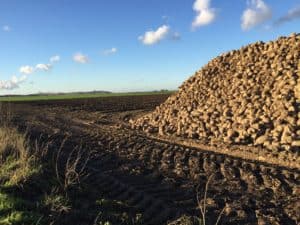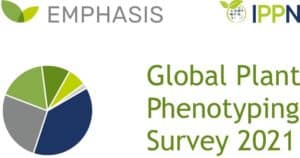NEWS
Stay updated on the latest developments in plant science policy and EPSO activities!
In February 2020, The ERA-Net Cofund on Sustainable Crop Production (SusCrop) launched a 2nd transnational call for proposals. Following the Co-funded Call in 2018 (1st call), the aim of this 2nd call is to support scientifically excellent transnational research, development and innovation projects that contribute to the improvement of sustainability (environmental, economic and societal) and resilience of crop production within the European Research Area (ERA). In addition, this 2nd transnational call puts greater emphasis on how projects might contribute to food and nutritional security in the light of climate change.
Sixteen funding agencies from 12 different countries (Belgium, Denmark, Estonia, Finland, France, Germany, Latvia, Poland, Romania, Spain, Turkey and UK) supported this Call. At the 1st stage, 46 eligible pre-proposals underwent a scientific peer review process by a panel of international experts (IEP). Based on the evaluation results, the Steering Committee invited 15 consortia to submit a full proposal by September 10. The experts and funders meetings of the full proposals were held in October-November and resulted in the selection of eight consortia for funding with a total amount of about 7,5 Mio €. All four proposed call topics were addressed by the selected projects.
The eight projects were recommended for funding by the 2nd Call Steering Committee. The national contract negotiations for funding are currently ongoing and projects are expected to officially start early 2021.
Copyright: Christian Breuer, Ptj
Source: SusCrop-ERA-NET
The plant phenotyping initiatives IPPN and EMPHASIS have recently launched the Global Plant Phenotyping Survey 2021, which addresses participants from all geographic regions and in all professional disciplines in any way related to plant phenotyping. The survey is open until 9 February 2021.
For the past six years, IPPN and EMPHASIS IPPN and EMPHASIS have carried out their bi-annual Plant Phenotyping Surveys covering basic and advanced questions related to plant phenotyping for the purpose of assessing the status of global plant phenotyping and emerging fields, to identify potential gaps and understand the demands of the community. Participating in these surveys empowers everyone who contributes to add to the big picture of how plant phenotyping is applied and viewed.
Results will be made available online, and in the past, survey results have been extensively used for analyzing the global status of plant phenotyping (e.g. in this review by Yang et.al.).
Source: Institute of Bio- and Geosciences: Plant Sciences (IBG-2), Forschungszentrum Jülich GmbH
This international conference will be held on 18 – 22 January 2021 in a virtual format. It is hosted by the German Federal Ministry of Food and Agriculture (BMEL) an will tackle key issues regarding the future of the global agri-food industry.
The programme is available at: https://www.gffa-berlin.de/en/fachveranstaltungen-2021/
Participate to the Science Slam on 21 January 2021
A Science Slam will be held for the third time on the occasion of the 13th GFFA on 21 January 2021.
It will present four Science Slams of 10 minutes at most each connected with this year’s topic “How to Feed the World in Times of Pandemics and Climate Change?”. It should not only be characterised by scientific aspiration and originality but also by an entertaining and amusing delivery. Winners will be selected by the audience in the end in the form of an online vote.
Who can apply to the Science Slam? BMEL is looking for (junior) scientists and students from relevant research institutions and universities from the agri-food sector, who deal with this subject area and are interested in presenting a slam in English via live stream in front of a mixed audience.
For the GFFA Science Slam you can apply until 22 November 2020.
For more information: https://www.gffa-berlin.de/en/fachveranstaltungen-2021/science-slam/
Source: Federal Ministry of Food and Agriculture
The Research and Technology Organisation Association Lithuania (RTO Lithuania) and The Lithuanian Research Development and Innovation Liaison Office in Brussels (LINO). would like to invite you to the webinar: Post-COVID Green Deal Technology-Powered Recovery in Europe, which will take place on the 2nd of June 2020, 14-15 CET.
How COVID-19 pandemic will affect European Green Deal? Will EU recovery be sustainable and technology-powered? On these and other urgent issues we will speak with three guest speakers:
– Virginijus Sinkevičius, EU Commissioner for the Environment, Oceans and Fisheries
– Prof. Antti Vasara, President of EARTO, President & CEO of VTT Technical Research Centre of Finland
– Prof. Gintaras Valušis, EARTO and RTO Lithuania board member, Director of Center for Physical Sciences and Technology, Lithuania
If you are interested, do not hesitate to register. The webinar will be organised via Zoom with a total amount of 100 people. You can do that by clicking on this link: https://tinyurl.com/greendealwebinar.
ERC Advanced Grant support established, leading principal investigator who can demonstrate a ground-breaking nature, ambition and feasibility of their scientific proposal.
The call is open to any field and nationality. It offers up to a maximum of EUR 2 500 000 for a period of 5 years.
Up to an additional EUR 1 000 000 can be requested in the proposal to cover (a) eligible “start-up” costs for Principal Investigators moving to the EU or an Associated Country from elsewhere as a consequence of receiving the ERC grant and/or (b) the purchase of major equipment and/or (c) access to large facilities and/or (d) other major experimental and field work costs, excluding personnel costs. (As any additional funding is to cover major one-off costs it is not subject to pro-rata temporis reduction for projects of shorter duration. All funding requested is assessed during evaluation).
Deadline for application: 26 August 2020
Source : EC , 14.05.2020
Plant research and innovation can contribute through three main paths to achieve Nutritional Security (NS):
- Underutilised nutritious fruit and vegetable crops: improve their economic performance and further increase their nutritional quality – emerging over the past years and providing co-benefits in terms of NS and sustainable environment – the focus of this statement.
- Biofortification: increasing micronutrients in staple crops and / or enriching compounds enhancing the bioavailability of micronutrients – a strategy developed over the past decade which needs to be continued for consumers depending on or preferring staple crop products.
- Supplements: adding beneficial compounds during food processing for the end product – the most common strategy until now, but the mainly chemically synthesised compounds need to be replaced by their natural counterparts in future, e.g. from niche crops or agri-food side-products.
Plant based foods are receiving a remarkable attention during the last decades in the research field of nutrition, due to the biological activities recognized for many classes of phytochemicals and the relevance that food security topics are obtaining in European countries. The availability and accessibility to nutritionally rich food sources are hallmarks for human health and wellbeing, that is why many efforts are being directed towards old and new generations of plant crops. At multiple levels, EPSO and scientists involved in the Nutritional Security (NS) working group are discussing the best strategies to increase the content in beneficial biocompounds in the daily diet of European consumers.
- First level: Re-discovering underused species and landraces of fruits, vegetables and staple crops
- Second level: Use of new metabolic engineering / new breeding technologies to re-design high quality crops.
- Third level: Promoting co-developing improved crops and agricultural management practices and post-harvest processes for these to keep or even enhance nutritional quality in the fresh and transformed products.
- Fourth level: Linking the concept of diverse diets enriched in different classes of nutritionally active biocompounds with the prevention of human diseases.
- Fifth level: Linking the concept of diverse diets to human health AND environmental benefits.
This underpins the recommendation by plant scientists to develop ‘diverse crops with diverse cropping systems for diverse diets and human health and resilient production’ as a multi-disciplinary and cross-sectorial approach to achieve Nutritional Security and Environmental Sustainability as co-benefits.
The draft statement will be further discussed at the next EPSO NS Workshop early 2021 and then finalised. Contact the authors by end June to express your interest to participate in this workshop.
Click here to read the full EPSO draft statement
Contacts:
- Angelo Santino, CNR, IT & EPSO NS WG chair
- Monika Schreiner, IGZ Grossbeeren, DE & EPSO NS WG chair
- Chiara Tonelli, University of Milano & EPSO NS WG chair
- Karin Metzlaff, EPSO, BE

